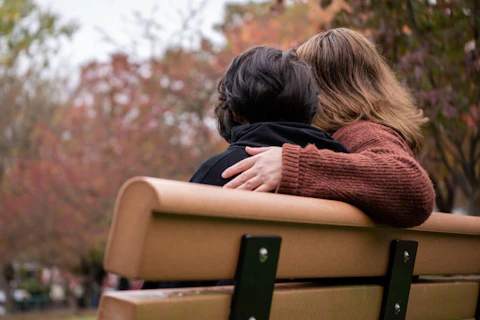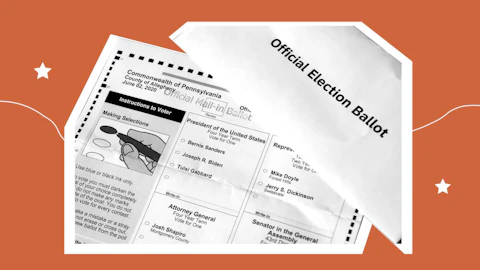“I consider it a sacred duty as a citizen to actively participate in our elections,” Maria Miller said. “And I think I appreciate it more as an immigrant.”
My mom, Maria Miller, studied hard for her citizenship test, sitting in her living room on a warm summer night in 1982, as my older sister, then 10, steadied the thick study guide in her small hands, quizzing Mom about the Constitution.
It had been 15 years since Mom had moved to the US from the Philippines, accompanied by her new husband and my dad, a Philadelphia native. Together, they built a life in the suburbs and started raising children. And yet, she told me, she didn’t feel fully rooted in her new country—until at last, she passed the test and became a naturalized citizen.
Once a citizen, my mom didn’t hesitate to exercise her right to vote. She quickly registered at the county courthouse, and was excited on Election Day as she arrived at her assigned polling place to cast her very first ballot.
“Finally, I was able to vote,” she recalled recently. “And I was so proud. We went to dinner after that to celebrate that I was able to vote. It was something momentous and I wish more people would feel like that.”
Voting in the Philippines
Voting was not a right taken for granted among Filipinos in the 1950s and early 1960s, my mom remembered. The nation was experiencing a season of democracy sandwiched between a recent end to 48 years of American colonization and the beginning of a 20-year-long Ferdinand Marcos dictatorship.
Everyone who could vote did, sometimes travelling several kilometers to get to their nearest polling place, Mom said.
“It wasn’t convenient, but people took the day off and go, by hook or by crook—on foot, by boat, by bus, by jeep, even on top of carabao—to get there. It was just something that you do,” she said.
My mom remembers accompanying her parents on Election Day. The streets would be filled with hundreds of people all heading in the same direction to vote in nearby Butuan City, a provincial capital on Mindanao island.
“It was just a fun time. We would stop on the roadside and have a picnic. We’d share food, so it was kind of like a party,” Mom said, describing a brief time in her country’s history when her people felt free to make their voices heard. “I understand it’s different now in the Philippines, which I’m sad to hear about.”
She said it’s why she has trouble understanding why so many Americans take voting for granted—or worse, decide not to vote at all.
“When people have to be reminded that it’s their civil duty to vote, it kind of saddens me because in other countries they fought for their right to vote, especially in countries where they’re authoritarian or dictatorships, where they have armed forces lining the elections polls and intimidating people,” my mom said.
Doing Her Part as a US Citizen
After she cast her first vote as a US citizen, Mom felt compelled to become more involved in elections, so she signed up to become a poll worker and continues to do so three decades later.
My mom, now 72 and retired, opted out of the primary election in June due to coronavirus concerns, but decided to return for November’s general election as a majority inspector in Bucks County.
“I feel even though with COVID, it’s still my civic duty to work at the polls because I’m really needed there,” my mom said. “I’ll be very careful wearing masks, and washing hands, and sanitizing our area. I have to be careful about my health. I’m 72 and I want to live to be 120, so I have a long way to go.”
She continued, “We really enjoy working. It’s something we look forward to twice a year, to go and do our work. It’s our contribution to the community and to government.”
Mom sees working the polls as an opportunity to encourage a new generation of voters, passing on her own enthusiasm and pride in voting.
“When we see a first-time voter, we always like to make them feel special that they’re finally voting,” Mom said. “We applaud when they come out, we high-five, we tell them, ‘Thank you and we’ll see you next time.’ We show them how happy we are they’re voting.”
Mom feels everyone should do their part by exercising their right to vote.
“I consider it a sacred duty as a citizen to actively participate in our elections,” she said. “And I think I appreciate it more as an immigrant.”





